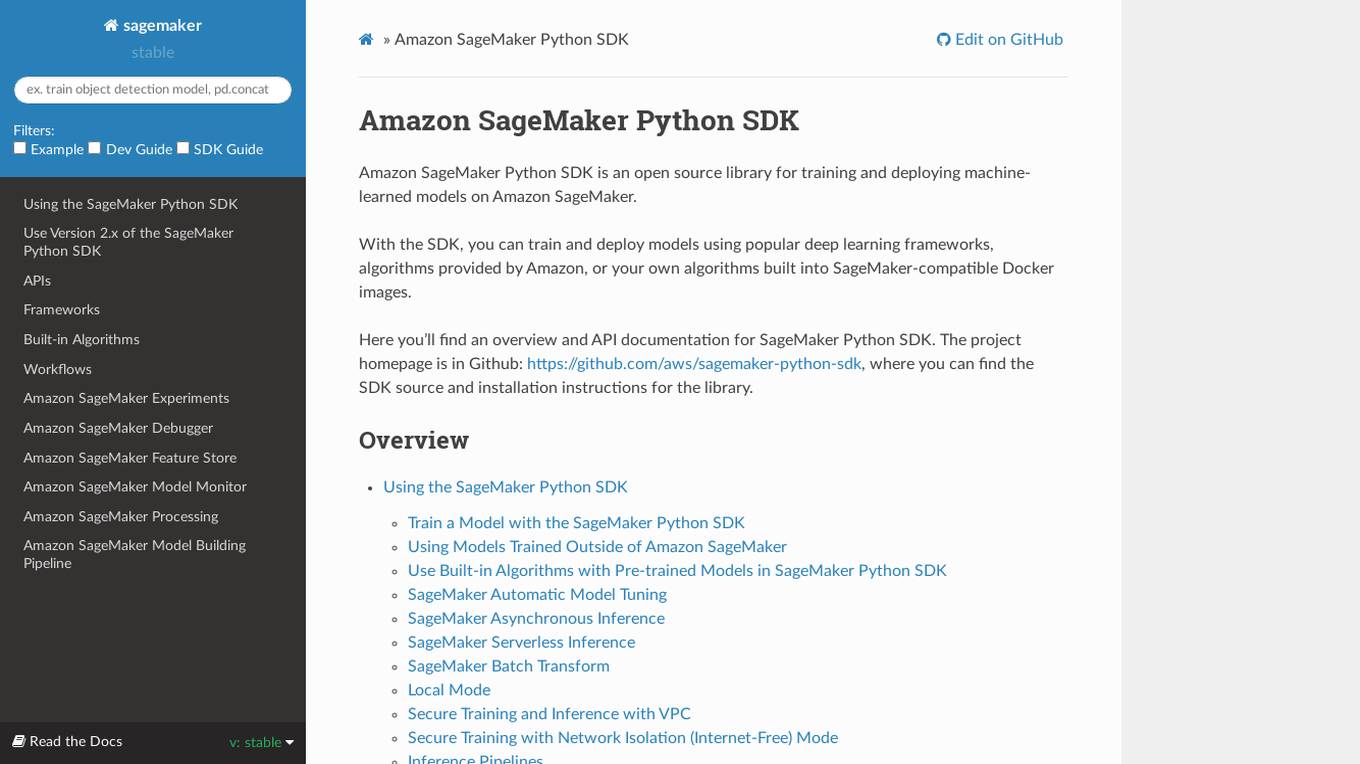Best AI tools for< Shoemaker >
Infographic
1 - AI tool Sites

Amazon SageMaker Python SDK
Amazon SageMaker Python SDK is an open source library for training and deploying machine-learned models on Amazon SageMaker. With the SDK, you can train and deploy models using popular deep learning frameworks, algorithms provided by Amazon, or your own algorithms built into SageMaker-compatible Docker images.
site
: 25.6k
0 - Open Source Tools
No tools available
